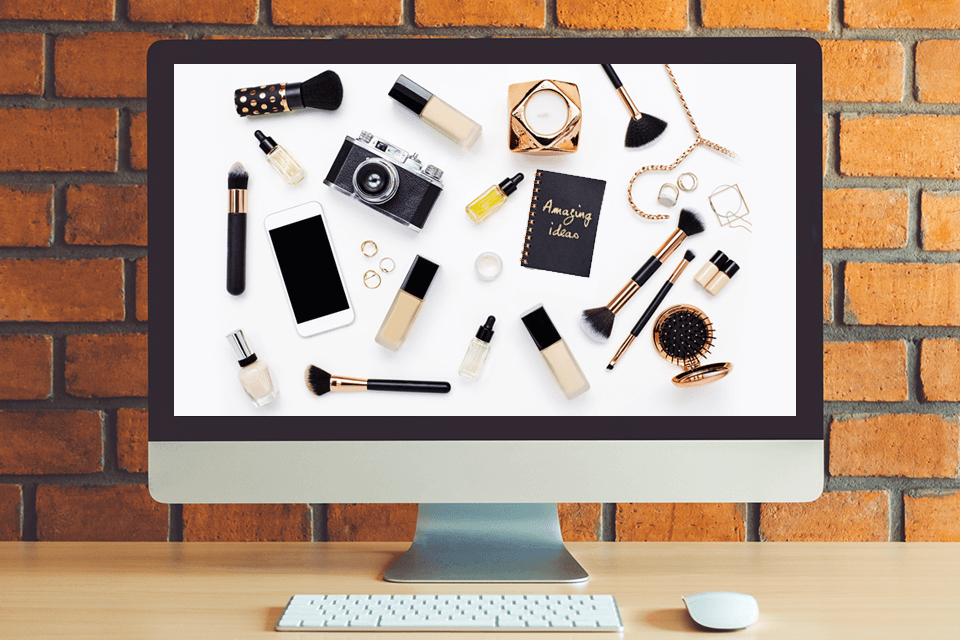How to Level Up Your eCommerce Product Photo Editing for Your Business?
Swati April 19, 2023 0 COMMENTS
If you are an e-commerce business owner, then you must be aware of the significance a product photo hold. Moreover, in today’s dynamic and competitive landscape, the need for a unique selling point is inevitable. For an e-commerce firm, the quality of the product image matters as it is the first impression of the object on the consumer. This is where product photo editing for your e-commerce products comes in handy.
You might get curious as to how you can boost your e-commerce product photo editing and streamline your business operations. You’ve come to the right place. This comprehensive guide will take you through ways to level up your photo editing services. Read on to find out more.
What Makes a Photo Good?
A good product photo is a combination of a variety of elements. Some of these include:
Composition
A well-composed photo has a balanced and pleasing arrangement of the subject, background, and other elements. This includes things like the rule of thirds, leading lines, and symmetry.
Exposure
Proper exposure ensures that the photo is not too bright or too dark and that the colors are accurately represented.
Focus
A sharp focus on the subject is important, especially if the photo is intended to capture fine details.
Top Tips for Upscaling Your eCommerce Product Photo Editing
Editing your product images can be the secret ingredient to increasing and boosting your sales. Let’s take a look at a few tips you can incorporate into your e-commerce product photo editing services.
Choose the Right Background
A consistent background can help create a cohesive look across your website and make your products stand out. A plain white or black background is a popular choice for e-commerce product photos because it allows the product to be the main focus. Be sure to utilize a common background for each product image to create a polished and professional look. For instance, if you have a lot of product shots or sell large products, you might find a white backdrop worthwhile.
Avoid Shadows
Shadows can be distracting and take away from the overall look and feel of your product photos. To avoid shadows, make sure that your lighting is set up properly and that your camera is positioned at the right angle. If you do have shadows in your photos, you can use photo editing software to remove them or lighten them up. However, it’s always best to try and avoid shadows during the photo shoot to save time and effort during the editing process.
Choose the Right Photo Editing Software
Photo editing software like Adobe Photoshop or Lightroom can help you enhance your product photos by adjusting brightness, contrast, color balance, and more. You can also remove any unwanted elements from your photos, adjust the image size, and add watermarks or branding elements. These tools can be complex, so it’s worth investing some time to learn the basics or seeking out online tutorials to get started.
Outsourcing
Many businesses or individuals opt for outsourcing their editing of product photos. This not only helps you save time but also is cost-efficient. Outsourcing your photo editing tasks can be a good option if you don’t have the time, expertise, or equipment to handle them yourself. You can find professional photo editors online or freelance marketplaces. They can often work quickly and efficiently to deliver high-quality product photos ready for your e-commerce store.
Setting the Proper Light
Lighting is one of the major components of image editing services. Setting the proper light is essential to creating high-quality product photos. Whether you’re using natural or artificial light, be sure to set up your lighting equipment in a way that evenly illuminates your product without creating harsh shadows. Using a lightbox or softbox can help diffuse the light and create a more even and natural look.
Conclusion
To get the perfect photo, you need to be equipped with the camera settings, choose the right angle, pick the most accurate shot, and have an amazing backdrop. Every little thing contributes to getting the ideal product image. The tips mentioned above are sure to guide you through creating the ultimate portfolio of your products.
RELATED ARTICLES
Latest Articles
 Mastering the Art of Machine Vision: Choosing the Perfect Lens for Optimum PerformanceIn TechnologyMay 2, 2024Key Takeaways: Machine vision is a technology that […]
Mastering the Art of Machine Vision: Choosing the Perfect Lens for Optimum PerformanceIn TechnologyMay 2, 2024Key Takeaways: Machine vision is a technology that […] Unlocking Success: Mastering Bank PO Interview PreparationIn EducationApril 24, 2024For banking careers, PO interviews stand as formidable […]
Unlocking Success: Mastering Bank PO Interview PreparationIn EducationApril 24, 2024For banking careers, PO interviews stand as formidable […] The Strategic Value of Purchasing FontsIn TipsApril 18, 2024In today’s visually driven world, fonts are more […]
The Strategic Value of Purchasing FontsIn TipsApril 18, 2024In today’s visually driven world, fonts are more […] Revolutionizing Business: How AI Transforms Customer Experience in the Inflatable IndustryIn BusinessApril 16, 2024Inflatable water slides are the epitome of summer fun, […]
Revolutionizing Business: How AI Transforms Customer Experience in the Inflatable IndustryIn BusinessApril 16, 2024Inflatable water slides are the epitome of summer fun, […] Most Asked Microservice Interview Questions For 2024In TechnologyApril 2, 2024To keep up with changing trends in the tech industry […]
Most Asked Microservice Interview Questions For 2024In TechnologyApril 2, 2024To keep up with changing trends in the tech industry […] Best JavaScript and CSS Library In 2024In TechnologyApril 2, 2024With the ever-expanding functionality of web […]
Best JavaScript and CSS Library In 2024In TechnologyApril 2, 2024With the ever-expanding functionality of web […] Front-End Development Trends to Follow in 2024In TechnologyApril 2, 2024For better engagement, the front-end development of […]
Front-End Development Trends to Follow in 2024In TechnologyApril 2, 2024For better engagement, the front-end development of […] Simplifying Mealtime: Meal Prepping for a Family of FourIn UncategorizedMarch 22, 2024In the hustle and bustle of daily life, planning and […]
Simplifying Mealtime: Meal Prepping for a Family of FourIn UncategorizedMarch 22, 2024In the hustle and bustle of daily life, planning and […] How to Freeze Dry Candy With And Without a Machine?In FoodFebruary 27, 2024A candy lover constantly searches for novel and […]
How to Freeze Dry Candy With And Without a Machine?In FoodFebruary 27, 2024A candy lover constantly searches for novel and […] How to Get Something Out Of Your Eye Immediately?In healthFebruary 27, 2024Getting something inside your eyes can be frustrating […]
How to Get Something Out Of Your Eye Immediately?In healthFebruary 27, 2024Getting something inside your eyes can be frustrating […] The Evolution of Remote Control Technology: From RC Cars to DronesIn TechnologyFebruary 22, 2024Remote control technology has come a long way since […]
The Evolution of Remote Control Technology: From RC Cars to DronesIn TechnologyFebruary 22, 2024Remote control technology has come a long way since […] Unveiling the most popular carnival costumes: A colorful parade of creativityIn FashionFebruary 19, 2024In the world of festivities and merrymaking, few […]
Unveiling the most popular carnival costumes: A colorful parade of creativityIn FashionFebruary 19, 2024In the world of festivities and merrymaking, few […]
stopie.com is a participant in the Amazon Services LLC Associates Program, an affiliate advertising program designed to provide a means for sites to earn advertising fees by advertising and linking to Amazon.com.
Clicking on an Amazon link from stopie.com does not increase the cost of any item you purchase.
We will only ever link to Amazon products that we think our visitors may be interested in and appreciate learning more about.



